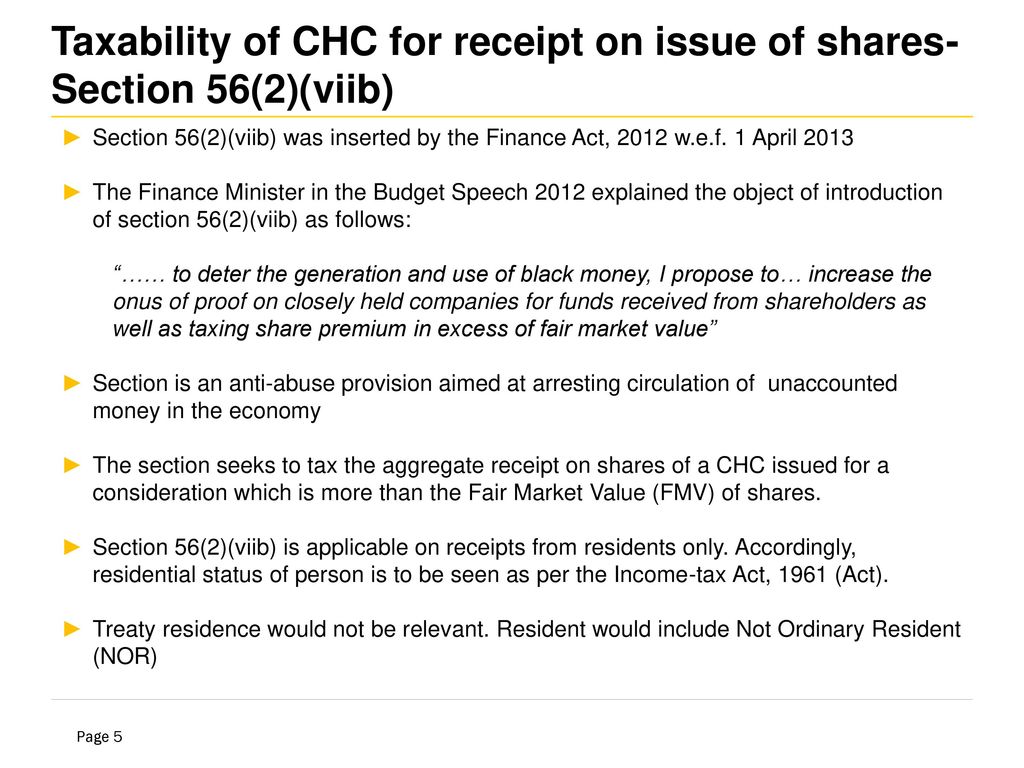The Chase on Notional Income widens, but the loopholes prevail!

The Chase on Notional Income widens, but the loopholes prevail!
The year 1998 saw the dissolution of the Gift Tax Act which led to the creation of a very dynamic section-Section 56(2) of the Income Tax Act, 1961. As per this section, incomes and gains from sources where assets were to be transferred to another party without any form of payment or with an insufficient amount of consideration, were liable to be taxed under Section 56(2). So we can exactly say The Chase on Notional Income widens, but the loopholes prevail!

Chase on Notional Income widens- CBDT clarifies the Loopholes that Prevails-
Although this particular section has provided the authorities tool to check the transactions and launder any unaccounted income, questions arose regarding certain loopholes identified in the section. There have been clarifications released by the Central Board of Direct Taxes (CBDT) to address the concerns and to cover any loopholes.
A question being raised is as under:
The term “receives” has been used in Section 56(2) (vii a). Is it inclusive of receipt of shares of companies(in which the public is not interested in a large extent) by way of issuing shares of the company either by new issue or issue of right shares or bonus issues or similar transactions?
Let’s first understand different Sections of Income Tax-
Section 56(2) (vii a) of the IT Act, 1961-What is Act of Receiving?
The (vii a) clause was included in the Section by the Finance Act, 2010. The aim was to prevent the method of transfer of share that is unlisted at a price that differs from that of the fair market value of those shares as well as to avoid transactions shares of a company are issued for no consideration, or inadequate consideration and the recipient of these shares is a company as well.
Also, receiving shares – new issue or issue of right shares or bonus issues or similar transactions is a nothing but creating securities and doesn’t refer to transferring the shares. This has been clarified by the CBDT in its circular as on 31 December 2018.
Now, for an average person, “receiving” would mean to receive a particular thing that already existed as well the act of creating that specific thing.
Section 56(2) (vii b)-Deals with Taxation related to the fresh issue of shares-
Thus, Section 56(2) (vii a) is applied to transactions which involve a transfer of shares from the first party to another party, and not mere issuing of shares. It is quite evident that shares can be treated as stocks/goods only once the issuing process is complete. Hence, the term “receives” which has been used in Section 56 (2) (vii a) is not inclusive of issuance of shares. Therefore, Section 56(2) (vii a) of the Act will not apply to any fresh issue of shares by a particular company. However, do note that taxation related to the fresh issue of shares is included under Section 56(2) (vii b).
Section 56(2)(vii)(c) of the IT Act- Shareholder can’t be Taxed only if Shares been allocated in Proportion-
In the recent Subodh Menon case (order dated 7 December 2018 ), the Income Tax Appellate Tribunal stated that under Section 56(2)(vii)(c) of the IT Act, 1961, a shareholder can’t be taxed as long as the shares have been allotted to him/her in proportion irrespective of the value.
Section 56(2)(x) of the IT Act- Fresh issue of shares will not be taxed at the normal rate-
Section 56(2)(x) of the IT Act, 1961 was introduced by the Union Budget 2017 which clubbed Section 56(2)(vii) and Section 56(2) (vii a) together. It also widened the scope of income from other sources. Fresh issue of shares of the closely held companies will not be taxed at the normal rate.
Conclusion-
Section 56(2)( vii a) was trying to stop a crime which is similar to the one stated in Section 56(2)(x), which again leads us to the question on the term “receives” (which has been clarified by CBDT). The question draws down once again to ” Is Section 56(2)(x) of the Act also limited to just the transfer of the prevailing shares and not include the fresh issue of shares?


 ITAT Amritsar: No Section 269SS Violation for One-Time Cash Payment Before Sub-Registrar
ITAT Amritsar: No Section 269SS Violation for One-Time Cash Payment Before Sub-Registrar  Tax Officials Unleash Digital Dragnet: How New Raid Powers Redefine Privacy, Property Rights in India and likely to Fuel Corruption
Tax Officials Unleash Digital Dragnet: How New Raid Powers Redefine Privacy, Property Rights in India and likely to Fuel Corruption  Income Tax Department Rewards for Reporting Tax Evasion: A Comprehensive Guide
Income Tax Department Rewards for Reporting Tax Evasion: A Comprehensive Guide  Forfeiture of Gratuity by Employer- What are the Remedies for an employee- Can employer be challenged?
Forfeiture of Gratuity by Employer- What are the Remedies for an employee- Can employer be challenged?  Employer can forfeit gratuity of an employee in case of moral turpitude
Employer can forfeit gratuity of an employee in case of moral turpitude  Diving Deeper: The Impact of the New Tax Bill on Dairy and Farming Income
Diving Deeper: The Impact of the New Tax Bill on Dairy and Farming Income